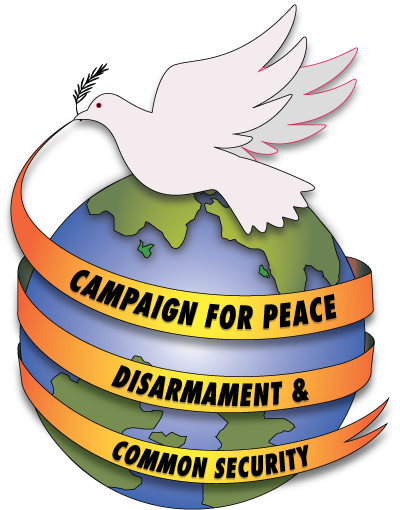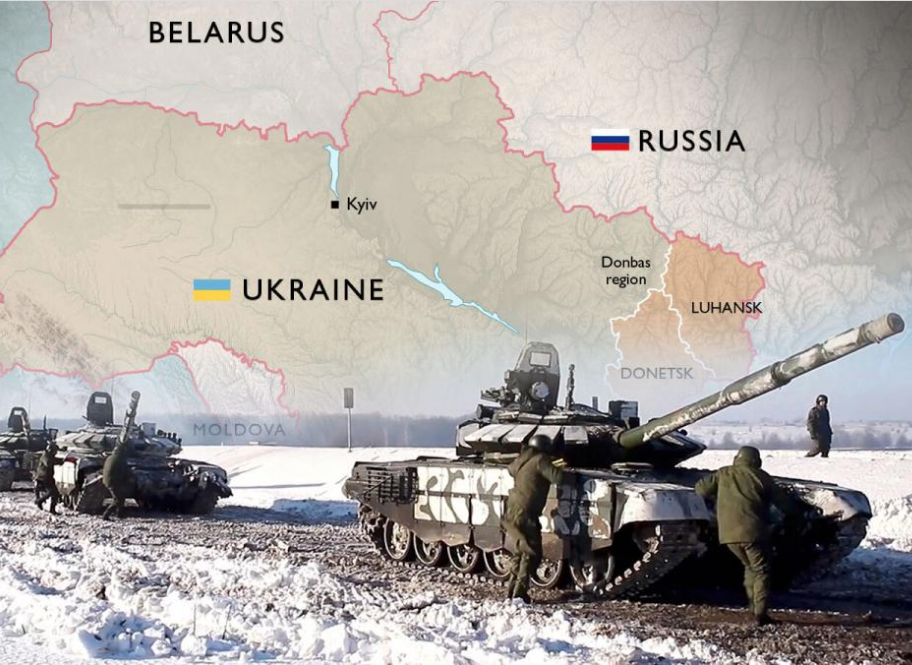For Common Security Diplomacy: End the Ukraine War, No New Cold War, A Nuclear-Free World
Joseph Gerson’s Speech in Gensuikyo’s (Japan Council against A- & H- Bombs) Annual Conference – February 28, 2022

I want to thank Gensuikyo for the privilege of joining you today.
With Russia’s catastrophic invasion of Ukraine, we face the danger that it could unintentionally lead to a wider, potentially nuclear, war.
The invasion of Ukraine is the vehicle being used to brutally smash through U.S. led resistance to honor Post-Cold War Common Security commitments, NATO’s expansion, and Kiev’s refusal to implement the Minsk agreements are at the heart of the crisis. This doesn’t justify Moscow’s decision for war, its violations of the U.N. Charter, and the Budapest Memorandum.
Russia’s invasion, as well as its veiled nuclear threats, must be condemned. We need a ceasefire now and commitments to comprehensive Common Security negotiations.
Putin is pushing back against U.S. and NATO violations of their OSCE and NATO-Russia Founding Act commitments “not to strengthen their security at the expense of the security of other States”, as well as Putin’s ambition to recreate the Russian Empire. In moving NATO to Russia’s border, the U.S. disregarded Russia’s history of devasting invasions by Napoleon, the Kaiser and Hitler. Even George Kennan, and Fiona Hill warned that NATO expansion would trigger a new Cold War. While Putin is primarily responsible for his imperial invasion, Biden’s insistence on holding NATO’s
membership door open was a serious contributing factor to the war.
Putin could have declared victory without a war. His military threats and the diplomacy it engendered created an emerging consensus for a diplomatic agenda. It included neutral peacekeeping forces to Ukraine, updating the INF and CFE treaties, banning intermediate range missiles and conventional strike forces from the Urals to the Atlantic, and negotiations for a New START follow on treaty. Even former U.S. ambassador to Russia, McFaul called for negotiating a new “grand bargain.” Instead, we face war’s dangerous uncertainties and the new Cold War.
Among the unintended consequences of the invasion is the belief that if Ukraine hadn’t surrendered the nuclear weapons left behind by the Soviet Union, it would not have been invaded. This must influence proliferation thinking in Teheran and Seoul and it clearly led to Prime Minister Kishida dangerously raising the possibility of inviting U.S. nuclear weapons to again be based in Japan. There is also the reality that Biden has used the crisis to demonstrate that “the U.S. is back”. NATO has been revitalized. More U.S. and NATO troops are being deployed to Eastern Europe. Sweden and Finland are moving closer to NATO. And there will be new military bases in Norway.
U.S. imperial arrogance has been extraordinary. While President Biden was
predicting the Russian invasion, Secretary Blinken flew to Australia and Fiji to reinforce the QUAD alliance and to ensure that China doesn’t outflank the 7 th Fleet. On the eve of Russia’s invasion, the White House issued its comprehensive imperial Indo-Pacific Security Strategy.
The Strategy begins with these intimidating words: “The United States is an Indo-Pacific power.” It commits the U.S. to strengthen the new QUAD alliance, reinforce military commitments to Taiwan, increase spending for its “Pacific Deterrence” and “Maritime Security” initiatives, augment military interoperability with its Indo-Pacific allies, and again pledges nuclear-powered submarines for Australia in violation of the NPT. It also pledges to build the “strategic partnership” with India and highlights India’s role as a “driving force of the QUAD and other regional fora”. Biden is building on Obama’s “pivot to Asia and the Pacific” to reinforce U.S. hegemony. This includes deployment of 60% of U.S. naval and air power to the Asia-Pacific, increasing U.S. reliance on “regional allies and partners”, and planning for a possible air-sea battle against China.
Particularly dangerous area Biden’s and Tokyo’s assault on the One China policy. Both nations have committed to defend Taiwan militarily and to bring it fully into the U.S, sphere. Separated from China by Japan and the U.S. for 125 years, Taiwan is developing an independent national identity, making the situation extremely complex. Meanwhile, Beijing insists on reunification of its “renegade province”. Provocative U.S. and Chinese military “exercises’ in Taiwanese waters and airspace could lead to accidents, incidents and miscalculations triggering a disastrous war. The same applies to the South China/West Philippine Seas, where Japanese, NATO, and Russian warships contest those of China.
The U.S., China, and Japan should focus on addressing the nuclear and climate threats. Instead, they are ratcheting up military spending – in Japan’s case pledging to double an already huge military budget. This is madness.
All of this takes place under the shadow of the nuclear powers’ omnicidal
nuclear arsenals. Despite the P-5’s statement that nuclear war cannot be won and must never be fought, they are upgrading their arsenals. And Putin threatened us of his nuclear arsenal to reinforce his invasion of Ukraine.
President Biden’s offered hope that his Nuclear Posture Review would reduce U.S. reliance on its nuclear arsenal. Now, compounded by the Ukraine War, there will be only minimal changes from Trump’s first-strike nuclear war fighting doctrine. Consistent with the history of U.S. nuclear threats during international crises and wars, Biden’s Nuclear Posture Review will reaffirm the first-strike doctrine, albeit in less explicit language. And there will be hundreds of billions of dollars to upgrade the nuclear triad.
The new Cold Wars threaten human survival, from wars and provocative military operations that can escalate beyond control, and by preventing progress in addressing the climate emergency. We must demand end to the Ukraine war, that our governments discard their cold war policies, and that they pursue disarmament and common security diplomacy.
Gensuikyo= is positioned to play a decisive role in turning the world back from the brink. By relying more on diplomacy instead of military confrontations over the Senkaku-Diaoyu rocks and Taiwan, Japan could play critical roles in deescalating tensions. Your campaign for the TPNW, supported by the majority of Japanese people, will prevail. That in turn will challenge the illusions and false narratives that make preparations for nuclear Armageddon possible .

